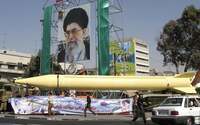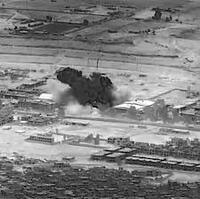Arnon Grunberg's Blog, page 11
June 30, 2025
Masterpiece
 Generations
GenerationsOn bursts of tenderness – Tom Crewe in LRB:
“Something very strange has been going on. Picking up the paperback of Ocean Vuong’s first novel, On Earth We’re Briefly Gorgeous, which has now sold more than a million copies, you encounter blurbs the likes of which you’ve never seen before. ‘A marvel,’ Marlon James says. Daisy Johnson tells us that ‘Vuong is rewriting what fiction is supposed to be’ and – forgetting the medium – that ‘it’s a privilege to watch.’ ‘Thank you, Ocean Vuong,’ Michael Cunningham chimes, ‘for this brilliant and remarkable first novel.’ Ben Lerner goes big: ‘Vuong ... expands our sense of what literature can make visible, thinkable, felt across borders and generations and genres.’ He must have thought this would be hard to beat. But he hadn’t reckoned on Max Porter, who declares it ‘a masterpiece ... a staggeringly beautiful book’, and what’s more, a ‘huge gift to the world’.
Then you read the book and are confronted with such lines as ‘a bullet without a body is a song without ears.’ Or: ‘The most useful thing one can do with empty hands is hold on.’ Or: ‘The work somehow sutured a fracture inside me.’ Or: ‘I drove my face into him as if into a climate, the autobiography of a season.’ Or: ‘The heart, like any law, stops only for the living.’ It’s obvious that Vuong is rewriting what fiction is supposed to be, but is it a privilege to watch?On Earth We’re Briefly Gorgeous, which was published in 2019, takes the form of a letter written by a young man, known only as Little Dog, to his mother, Rose. Little Dog’s life story, which closely maps onto Vuong’s, involves his coming to the US from Vietnam in 1990 aged two and growing up in deindustrialised, down-and-out, opioid-numbed Hartford, Connecticut. He is raised mainly by Rose, who has almost no English and is illiterate (so can’t read the story she is being told, which is in some sense her story), and suffers from mental illness. She beats her son between occasional bursts of tenderness.”
(…)
“After this, Trevor shows a softer side, and takes Little Dog to the river to wash, before making a grand redemptive gesture.
I was only a few steps ahead of him before I felt his palm push hard between my shoulders, leaning me forward, my hands instinctually braced on my knees. Before I could turn around, I felt his stubble, first between my thighs, then higher. He had knelt in the shallows, knees sunk in river mud. I shook – his tongue so impossibly warm compared to the cold water, the sudden, wordless act ... I looked between my legs and saw his chin moving to work the act into what it was, what it always has been: a kind of mercy. To be clean again. To be good again. What have we become to each other if not what we’ve done to each other? Although this was not the first time he did this, it was the only time the act gained new, concussive power. I was devoured, it seemed, not by a person, Trevor, so much as by desire itself. To be reclaimed by that want, to be baptised by its pure need.
It’s hard to believe that, in the history of literature, an episode of rimming has ever been presented in such gauzy terms, made quite so desperately sentimental. It stands for the evasions – and confusions (‘concussive’) – of a desperately sentimental book.”
(…)
“But no writer can expect to be taken at their own self-estimation.”
Read the review here.
A hatchet job can be fun to read, as long as you are not the victim of the hatchet man that is.
Sentimental fiction in which suffering is romanticized and certain minorities – the ones that according to current standards deserve empathy – are subtly or not subtly glorified has been popular for quite a while.
Oprah played a huge role in this.
And the examples that have been given are quite convincing. On the other hand, you can find sentences in Kafka’s work that can be easily ridiculed.
But to turn the act of rimming into pure sentimentality is definitely a highlight.
June 29, 2025
Lech
 Several
SeveralOn the material – Nat Segnit in TLS:
‘Towards the end of his 900-page biography of Philip Roth, Blake Bailey quotes from a letter Roth wrote to his friend Bernard Avishai on the subject of the then-nascent #MeToo movement. “I heed the cry of the women insulted and injured”, conceded Roth. “But I am also made anxious by the nature of the tribunal that is adjudicating these charges. I am made anxious, as a civil libertarian, because there doesn’t seem to be a tribunal. What I see instead is publicized accusation instantly followed by peremptory punishment.”Ten days after the US publication of Philip Roth: The biography in April 2021, several of Bailey’s former eighth-grade students at Lusher high school in New Orleans came forward with allegations that he had groomed them for sex. Two women, including one of his former students at Lusher, subsequently accused him of rape. (In the case of the former student, the incident allegedly took place several years after graduation, when she was twenty-two.) Although Bailey denied the allegations, and no formal charges were made, his US publishers, W. W. Norton, withdrew the book from sale and his agent publicly fired him. His friends from the New York literary scene “all but fell over one another” to disassociate themselves. His long-suffering wife finally filed for divorce.’
(…)
‘Reading Canceled Lives, it is all but impossible not to speculate about what Roth would have made of the material – “Let the repellent in”, as Roth often said, and as Blake Bailey quotes approvingly. The difference, however, between Sabbath’s Theater and Canceled Lives is that the former admits the ugly, the uncomfortable, the radically inappropriate, only to transfigure them by the force of its art. The latter lets the repellent in and, to a great extent, leaves it there, just as it was.’
Read the article here.
Let the repellent in or let the insects in?
Nowadays probably the Roth-biography would not have been canceled anymore.
Follow your instinct, often means, follow your wallet.
Poor Roth, no Nobel Prize and a biographer that turned out to be a lech.
The lech is making a comeback.
June 27, 2025
Area
 Boundaries
BoundariesOn killing zones – Nir Hasson, Yaniv Kubovich and Bar Peleg:
‘Israeli soldiers in Gaza told Haaretz that the army has deliberately fired at Palestinians near aid distribution sites over the past month.
Conversations with officers and soldiers reveal that commanders ordered troops to shoot at crowds to drive them away or disperse them, even though it was clear they posed no threat.’
(…)
‘The Gaza Humanitarian Foundation (GHF) aid centers began operating in the Strip at the end of May. The circumstances of the foundation's establishment and its funding are murky: it is known to have been set up by Israel in coordination with U.S. evangelicals and private security contractors. Its current CEO is an evangelical leader close to U.S. President Donald Trump and Israeli Prime Minister Benjamin Netanyahu.’
(…)
‘Contrary to the foundation's initial promises, distribution is chaotic, with crowds rushing the piles of boxes. Since the rapid distribution centers opened, Haaretz has counted 19 shooting incidents near them. While the shooters' identities are not always clear, the IDF does not permit armed individuals in these humanitarian zones without its knowledge.
The distribution centers typically open for just one hour each morning. According to officers and soldiers who served in their areas, the IDF fires at people who arrive before opening hours to prevent them from approaching, or again after the centers close, to disperse them. Since some of the shooting incidents occurred at night – ahead of the opening – it's possible that some civilians couldn't see the boundaries of the designated area.’
(…)
‘IDF officers told Haaretz that the army does not allow the public in Israel or abroad to see footage of what takes place around the food distribution sites. According to them, the army is satisfied that the GHF's operations have prevented a total collapse of international legitimacy for continuing the war. They believe the IDF has managed to turn Gaza into a "backyard," especially since the war with Iran began.’
(…)
‘"Today, any private contractor working in Gaza with engineering equipment receives 5,000 [roughly $1,500] shekels for every house they demolish," said a veteran fighter. "They're making a fortune. From their perspective, any moment where they don't demolish houses is a loss of money, and the forces have to secure their work. The contractors, who act like a kind of sheriff, demolish wherever they want along the entire front."
As a result, the fighter added, the contractors' demolition campaign brings them, along with their relatively small security details, close to distribution points or along the routes used by aid trucks.’
(…)
‘A reserve tank soldier who recently served with Division 252 in northern Gaza confirmed the reports and explained the IDF's "deterrence procedure" for dispersing civilians who gather in violation of military orders.
"The teenagers waiting for the trucks hide behind dirt mounds and rush them as they pass or stop at distribution points," he said. "We usually see them from hundreds of meters away; it's not a situation where they pose a threat to us."
In one incident, the soldier was instructed to fire a shell toward a crowd gathered near the coastline. "Technically, it's supposed to be warning fire – either to push people back or stop them from advancing," he said. "But lately, firing shells has just become standard practice. Every time we fire, there are casualties and deaths, and when someone asks why a shell is necessary, there's never a good answer. Sometimes, merely asking the question annoys the commanders."’
(…)
‘"They talk about using artillery on a junction full of civilians as if it's normal," said a military source who attended the meeting. "An entire conversation about whether it's right or wrong to use artillery, without even asking why that weapon was needed in the first place. What concerns everyone is whether it'll hurt our legitimacy to keep operating in Gaza. The moral aspect is practically nonexistent. No one stops to ask why dozens of civilians looking for food are being killed every day."’
Read the article here.
Gaza has become or probably always was ‘a parallel universe.’ The Israeli army operates as a militia that could be led by Col. Kurtz.
It’s clear that despite international outrage Gaza is once again forgotten.
The disregard of human life is appalling.
I’m not sure how Israeli society can recover from this orgy of violence.
Maybe in ten or twenty years from now people in Israel will demand answers, but I would not bet my money on that. Sometimes history let people get away with horrendous crimes.
What should become of Gaza is even less clear. Hell on earth forever?
Farms
 Mine
MineOn gold – The Economist:
‘The miners’ chants filled the main square of Trujillo, a city on Peru’s northern coast. Many of them had travelled from Pataz, a province deep in the Andean hinterlands where a gang recently murdered 13 guards working in a gold mine. “There’s a lot of crime in the mountains,” said a man with a white hard hat. In response to the killings, Peru’s government imposed a month-long ban on mining in Pataz. But the protesters wanted to return to work. “The miners of Pataz are not criminals. We demand the right to work,” read a woman’s t-shirt.
As the largest producer of gold in Latin America, Peru has been particularly hard hit by a wave of violence linked to illegal mining in the region. Poderosa, a mining company, says 39 workers have been killed in Pataz in the past three years. Two mass graves have been discovered there since October. In January the prosecutor’s office in Trujillo was bombed.’
(…)
‘Meanwhile, coca-bush cultivation in Bolivia, Colombia and Peru has doubled since 2010. Many gangsters are worried that cocaine may become less profitable, so they are piling into the illegal gold market. The two criminal activities complement each other. In the Amazon, coca farms and illegal gold mines often share the same infrastructure, such as landing strips for aircraft. Gangs invest their earnings from drug-trafficking in mining projects, whose output can be laundered and sold as though it had been dug up legally.
In Colombia and Peru gangs are now thought to make more money from gold than from the sale of narcotics. The Peruvian Institute of Economics, a research outfit in Lima, the capital, reckons the country exported $4.8bn of illegal gold last year (see chart). That would represent 44% of Peru’s total gold exports, up from 20% a decade ago. In Brazil the government estimates that gangs earned more than 18bn reais (around $3bn) from the sale of gold in 2022, compared with 15bn reais from cocaine.’
(…)
‘Luis Miguel Castilla, a Peruvian former finance minister, worries about his country’s future: “I see a lot of similarities with the 1980s, when armed groups controlled large parts of the country.” Across the region, dealing with illegal mining will require a rethink. Redirecting national budgets would help. Peru’s government allocated $73m to combat drug-traffickers in this year’s budget, compared with a puny $17.5m to stop illegal mining. But crackdowns alone will not be enough. Without proper regulation of the sector, it will remain easy for gangs to move from one mineral-rich province to another. As the world gobbles up gold, Latin America bleeds.’
Read the article here.
Gold, the new cocaine?
And the problems in Peru have never been solved. The new violence is unlike the guerilla warfare in the 80s without idealism, no Marxism, no Maoism, just gangs fighting each other and the government.
Gold replaced Marx and Mao.
June 26, 2025
Need
 Importance
ImportanceOn sanctions – Zvi Bar'el in Haaretz:
‘Following the NATO summit meeting in the Netherland, U.S. President Donald Trump, as is his wont, held another one of his long, combative, admonishing and occasionally amusing press conferences, at the end of which no one knows where he's heading.’
(…)
‘If the objective of a new accord was to prevent Iran from obtaining nuclear weapons, and if the Israeli-American attack, particularly the massive attack on the Fordow installation with bunker-busting bombs, totally wiped out Iran's nuclear capabilities, there is no need for an agreement. But given the dispute among U.S. intelligence agencies regarding the "total obliteration" of Iran's nuclear capabilities, which caused Trump to launch an unbridled attack against the media, the issue of Iran's ability to rebuild its nuclear capabilities remains relevant.
It seems that Trump himself, despite his dismissal of the need for an agreement, recognizes its importance.’
(…)
‘The direction Iran is heading toward may be discerned from a resolution taken by Iran's parliament, according to which the government will not cooperate with the International Atomic Energy Agency, which monitors Iran's nuclear program and installations. This resolution was not a final one, as it formally requires ratification by a committee charged with examining the nation's interests. This is a committee with much authority and influence, which can ratify, reject or demand an amended formulation of parliamentary resolutions.’
(…)
‘The war has removed, at least for the time being, Iran's deterrent factor and thus its major leverage, offering a nuclear deal in exchange for lifting the sanctions, leverage it held for the purpose of attaining its goal. Ostensibly, a situation in which Iran needs an agreement with the U.S. more than the U.S. needs one, as indicated by Trump, affords the U.S. president an opportunity to bring up critical issues that he hadn't planned on discussing.’
(…)
‘Pezeshkian, incidentally, has been in favor of dialogue with the U.S. since the beginning of his term. He has called on American businessmen to invest in Iran and has even now received the backing of Khamenei. While the Iranian administration is deliberating over how and what it should talk about with the Americans, Iran has already received a free gift from Trump, who declared that China can purchase unlimited amounts of oil from Iran, thereby removing with one fell swoop one of the cornerstones of the maximal-pressure policy used on Iran.
Maybe one shouldn't wonder. According to Trump's logic, if Iran has no nuclear program, you don't need sanctions.’
Read the article here.
No nuclear program, no sanctions. Logical thinking for beginners.
Regime change wasn’t on the table in the first place.
The neocons have not disappeared completely, they made a comeback, but regime change was not part of the comeback.
What the war achieved is not clear and might not be clear for months to come.
And Trump is still aiming for the Nobel Peace Prize, so much is for sure.
I say: the odds ae in his favor.
June 24, 2025
Damaged
 Weapons
WeaponsOn the military die – Anthony Blinken in NYT:
‘So why was the strike a mistake?First, it never should have come to this. In 2015, the Obama administration, together with Britain, France, Germany, Russia, China and the European Union, reached agreement with Tehran on the Joint Comprehensive Plan of Action, or J.C.P.O.A. The nuclear deal effectively put Iran’s program to make fissile material, the fuel for a nuclear weapon, in a lockbox, with stringent procedures for monitoring Iran’s nuclear program. The deal pushed “breakout” — the amount of time it would take Iran to produce enough weapons-grade uranium for a single nuclear weapon — to at least one year. If Iran reneged on the agreement or refused to extend it when certain provisions expired after 15 years, we would know it and have plenty of time to respond, including, if necessary, militarily.’
(…)
‘Third, experts I’ve spoken to had real doubts about the ability of the Massive Ordnance Penetrator, or M.O.P. — the 30,000-pound bombs unique to America’s arsenal that were dropped on Iran’s nuclear sites — to fully incapacitate the Fordo site and other deeply buried or fortified components of Iran’s nuclear program. Initial reports suggest that while Iran’s nuclear infrastructure was severely damaged, it was not destroyed.’
(…)
‘Now that the military die has been cast, I can only hope that we inflicted maximum damage — damage that gives the president the leverage he needs to finally deliver the deal he has so far failed to achieve.’
Read the article here.
Damages but not destroyed.
Probably the Iranians will continue underground.
But he all-out-war has been avoided for now. And Mr. Trump appears to be able to influence Bibi.
It’s not much, but more than nothing.
June 23, 2025
Ordinary
 Trap
TrapOn abnormality - Camilla Nord in TLS:
‘In 2001, the World Health Organization estimated that 450 million people around the world lived with a mental disorder. In 2019, the WHO put the figure at 970 million – one in every eight people. This rise has coincided with an expanding list of diagnosable conditions, decreased stigma about receiving a diagnosis and, in some cases, a weakening of the criteria used to meet the thresholds for diagnosis. In short, more people are considered “abnormal” today than was the case two decades ago.
Three new books explore the possibility that medicine has fallen into the trap of overdiagnosis, bringing vulnerable patients with it.’
(…)
‘Psychotherapist Sami Timimi writes that the medical approach to mental health is ultimately false, arguing that “there is no such thing as a psychiatric diagnosis”, and that a better approach is “a narrative that will help rehabilitate emotions back into the sphere of the ordinary”.’
(…)
‘Perceiving one’s many adversities as “trauma” has the capacity to make the challenges themselves worse – harder to overcome. Even our “compassionate cultural habit” of issuing “trigger warnings” is unhelpful, worsening anxiety in anticipation.’
(…)
‘Searching for Normal concludes with the idea that de cerca nadie es normal (“up close, no one is normal”). For him, the solution is “the tearing down of the current paradigm” he argues for “no more use of psychiatric diagnoses”. “Technocratic diagnostic philosophies do not work in mental health. They make things worse.”O’Sullivan and Santhouse, however, maintain that diagnosis benefits some patients enormously. One patient comes to Santhouse’s clinic with memory deficits, convinced that her future lies in deterioration and progressive amnesia. Santhouse identifies her problems as functional cognitive disorder (a complex condition that shares many symptoms with dementia, but is not caused by structural damage to the brain), a diagnosis shared by somewhere between 12 and 56 per cent of people attending a memory clinic.’
(…)
‘The nuanced point she makes is not that these diagnoses cannot be identified reliably clinically, but that in identifying them, one may be labelling the wrong thing. She extends this to long Covid, as well as less well-known conditions such as mast cell activation and Chiari malformation. The cause of these conditions, and their co-occurrence, is that “people who express distress through physical symptoms tend to do so with lots of symptoms that attract a range of diagnoses”.’
(…)
‘Perhaps the real difference between the three books lies in how they – and we – decide what it means to be “unequivocally sick” in the first place, and how best to help those unlucky enough to find themselves in this category.’
Read the article here.
Trigger warnings are not helpful, the word ‘trauma’ itself does do harm, can do harm.
Labels are necessary but often people are mislabeled.
And unequivocally sick is still a category, what do to with people in this category remains a riddle. Mitigating their suffering is often the best strategy, but it can happen that the mitigators (doctors) are making the suffering worse.
June 22, 2025
All
 Way
WayOn the strike – Amir Tibon in Haaretz:
‘The American strike on Iran's nuclear sites is the most important and consequential action taken by Donald Trump since his return to the White House six months ago. Unlike his tariffs on goods imported to the U.S., which were presented with great fanfare but were then gradually downsized, the bombardment of Iran was a case of Trump going 'all the way' – even against the advice of some of his closest and most prominent supporters and advisers.’
(…)
‘But it's highly unlikely that Iran will sit by and do nothing. The real dilemma standing before the Islamic Republic is between a response that would be more bluster than bite, or a true escalation that will be met with even more American firepower. A fiercer retaliation will create greater risks for the regime, but would also complicate things for Trump, who promised this would be a short and successful mission and not another 'forever war' in the Middle East.’
(…)
‘Even if they choose to end the war with a response that doesn't create all-out escalation, it's hard to see them sign an agreement with Trump, requiring wall-to-wall concessions, after the events of the past ten days.’
(…)
‘his means that whatever the American public will come to think of this decision in the coming weeks and months will now be directly tied to its attitude towards Israel in the years to come.’
Read the article here.
No all-out-escalation, no agreement?
The gig question, what will change in the status quo after this attack?
Both sides don’t want all-out-war, and I don’t believe that an all-out-war is on the menu, but sometimes you get what you don’t want.
June 21, 2025
Sites
 Drenched
DrenchedOn the neighboring countries – Amos Harel in Haaretz:
‘If Israel holds the Iranian nuclear threat in check, that will be good news for the Europeans and certainly for the Sunni states in the Middle East. Senior officials in the neighboring countries are telling their Israeli counterparts, "just keep going" – exactly like in the wars against Hezbollah in 2006 and 2024.
These officials are expressing plenty of appreciation for Israel's operational and intelligence achievements, but also apprehension. They don't want Netanyahu to drag the region into another blood-drenched war of attrition without a rapid conclusion in the form of an agreement. A long war will also endanger the Gulf states' petroleum sites, certainly if Israel systematically attacks similar sites in Iran.’
Read the article here.
Get rid of the Ayatollahs, but do it quickly.
We will see what Trump with the B-2 bombers will do.
(NYT: ‘The Trump administration has not told the Israeli military whether the United States plans to join the war on Iran, two Israeli defense officials said on Saturday.
But the two officials, speaking on the condition of anonymity to discuss security matters, said they believed that Washington was likely to enter the war and that it was already making preparations to do so.’ Read it here.)
The consequences of the TACO-syndrome.
June 20, 2025
Military
 Poll
PollOn stubbornness – The Economist:
‘If Iran thought Europe would be more flexible than America, it may be disappointed.
Mr Trump has many reasons to hesitate about bombing Iran. It would be unpopular, for a start: 60% of Americans oppose getting involved in the war, with just 16% in favour, according to a poll from The Economist and YouGov. It would be particularly divisive within Mr Trump’s maga coalition. It also may not work: some American and allied military officers doubt that even the enormous gbu-57, America’s largest “bunker-buster” bomb, could penetrate deeply enough to destroy Fordow.’
(…)
‘Stubbornness was a viable strategy a decade ago, during the talks over the jcpoa. Barack Obama, the president at the time, gave up on his demands for a zero-enrichment deal when he realised Iran would not budge. It is less effective today, with Israeli jets roaring over Tehran—and America threatening to join them.’
Read the article here.
Stubbornness is not a strategy anymore.
War it is.
Or just a little war. (Not for the victims.)
The capriciousness is endless. The war of attrition also.
Arnon Grunberg's Blog
- Arnon Grunberg's profile
- 415 followers



